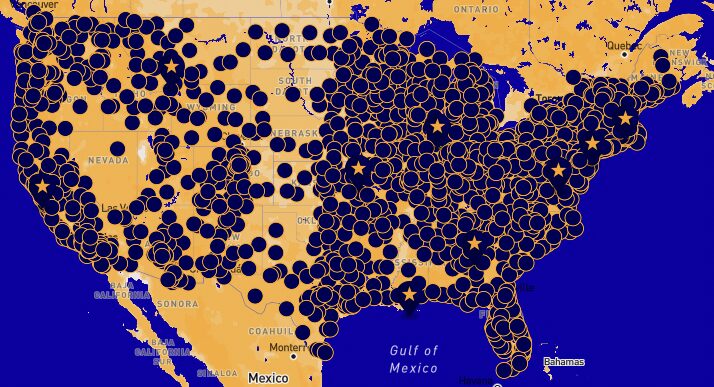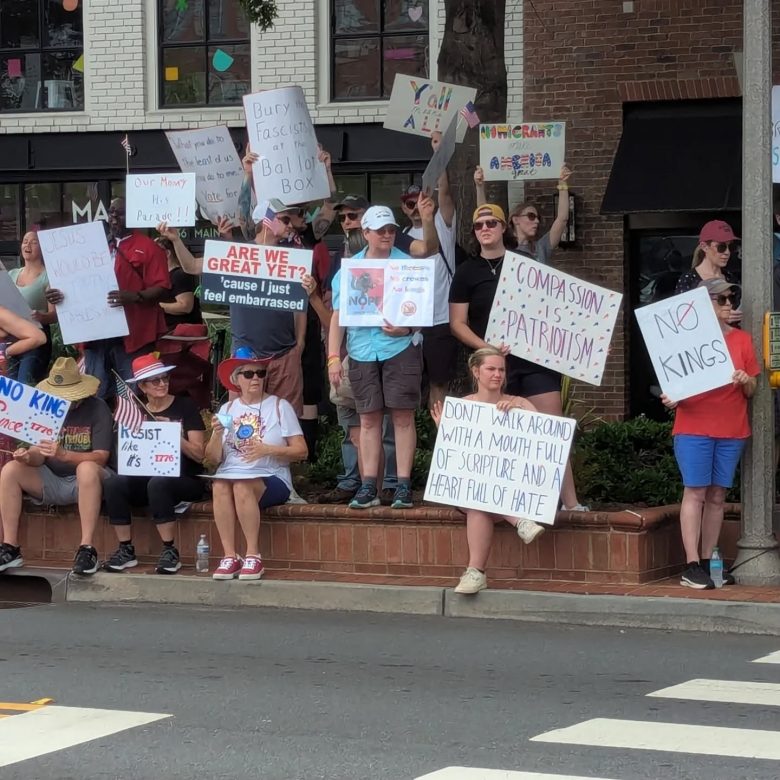Democratic activists are planning a series of “No Kings” protests across Georgia on Saturday.
The protests are happening nationwide, including nearly 40 in Georgia. Indivisible North Metro spokeswoman Laura Judge says she hopes the demonstrations remind participants that the power is with the people.

“We have no kings, no thrones, no crowns here in America,” she said. “That’s what America was based on and we’re gonna push back against this authoritarian authoritarianism that we see.”
Activists in Atlanta will hold a rally at the Civic Center followed by a march. The ongoing government shutdown and national guard deployment to cities around the U.S. are expected to be themes in rally speeches.
Saturday’s protests will be the second round of No Kings protests. Thousands of people across the state joined the first iteration of the No Kings protests in June.
Protests are planned for Atlanta, Columbus, Albany and other cities around the state. A list can be found here.
This story comes to The Georgia Sun through a reporting partnership with GPB a non-profit newsroom focused on reporting in Georgia.
📜 The First Amendment: “Congress shall make no law respecting an establishment of religion, or prohibiting the free exercise thereof; or abridging the freedom of speech, or of the press; or the right of the people peaceably to assemble, and to petition the Government for a redress of grievances.”
What Does it Mean: The First Amendment protects five big freedoms that everyone in the United States has.
These are the five freedoms:
- Freedom of Religion — You can believe in any religion you want, or not believe in any religion at all. The government can’t force you to believe something or punish you for your beliefs.
- Freedom of Speech — You can say what you think and share your ideas, even if others don’t agree with you without the threat of retribution from the government.
- Freedom of the Press — Newspapers, TV, websites, and reporters can share news and opinions without the government telling them what to say.
- Freedom to Assemble — You can gather in groups to protest, march, or meet peacefully to talk about things you care about.
- Freedom to Petition the Government — You can ask the government and government representatives to fix problems or make changes by writing letters, starting petitions, or speaking out in public.
In short, the First Amendment makes sure you can have your own thoughts, share your ideas, and stand up for what you believe — as long as you do it peacefully.
🛑 🛑 🛑
Before You Dismiss This Article…
We live in a time when information feels overwhelming, but here’s what hasn’t changed: facts exist whether they comfort us or not.
When A&W launched their third-pound burger to compete with McDonald’s Quarter Pounder in the 1980s, it failed spectacularly. Not because it tasted worse, but because customers thought 1/3 was smaller than 1/4. If basic math can trip us up, imagine how easily we can misread complex news.
The press isn’t against you when it reports something you don’t want to hear. Reporters are thermometers, not the fever itself. They’re telling you what verified sources are saying, not taking sides. Good reporting should challenge you — that’s literally the job.
Next time a story makes you angry, pause. Ask yourself: What evidence backs this up? Am I reacting with my brain or my gut? What would actually change my mind? And most importantly, am I assuming bias just because the story doesn’t match what I hoped to hear.
Smart readers choose verified information over their own comfort zone.


